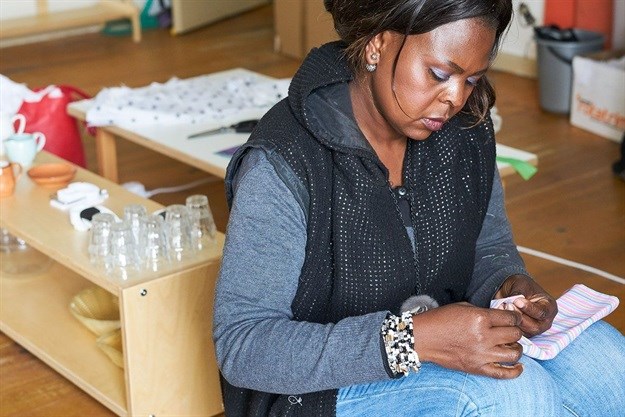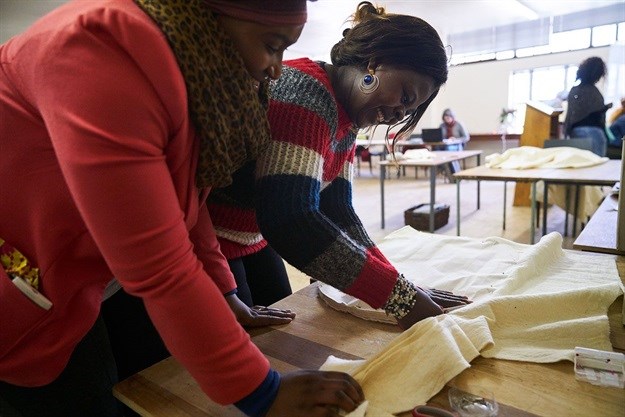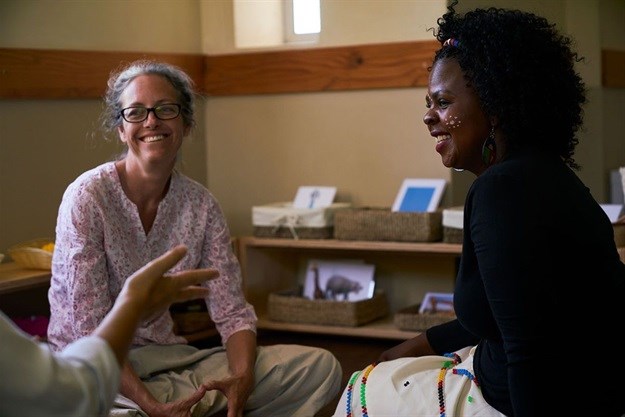The Indaba Institute in Stellenbosch held its first graduation ceremony for 22 students, including five recipients of Indaba Foundation bursaries, on Friday, 3 August. The programme is aimed at transforming educational opportunities in the early childhood sector in the Cape Winelands.

Indaba Foundation bursary recipient and graduate Primadonna Mabokela
The institute provides internationally recognised and accredited Montessori training with a focus on enhancing the skills and resources of early childhood educators from the Winelands community. It was established with the support of the Indaba Foundation, a fully accredited 501(c)(3) non-profit organisation set up by New York-based wine importer Cape Classics. The foundation also provides bursaries for students requiring financial support.
Among the graduates is Primadonna Mabokela, a foundation bursary recipient who believes the course has changed her life after she responded to an advert she spotted in a free community newspaper.
'Hopeful for the future'
“This makes me hopeful for the future. You see, there are many people abusing drugs and alcohol and who are impoverished, and unfortunately, in my community, most babies are born in those climates,” she explains. “I wish to open my very own birth to three years old school in my community in Klapmuts. It will be a haven of peace and security for children, as I believe that every baby is here for a higher purpose.”
Mabokela was one of 22 students awarded certificates for passing South Africa’s first ever Association Montessori Internationale Assistants to Infancy 0-3 Years Diploma training course. The 18-week course included Montessori theory, anatomy and physiology, obstetrics, nutrition and hygiene, as well as child neuropsychiatry, psych-sensory theory and demonstrations, home environment theory and demonstrations and communities theory and demonstrations.

Primadonna Mabokela and fellow student Shendren Gumede.
Mabokela expressed gratitude for the bursary and to the members of her community on the outskirts of Stellenbosch who stepped up when she was required to submit a registration fee of R200 to secure her application.
“At this point, I didn’t have any money and I was desperate. I spoke to my mum and she contacted friends in the local community who worked as pickers on the wine farms and asked them for a loan. The response was overwhelming, people came forth and offered whatever little they had and by the end of the day I accumulated all the money I needed,” she says.
It is a debt she intends to pay back through her work as an early childhood educator.
Uplifting experience
“Witnessing the graduation of Primadonna and the other students is a truly uplifting experience. A time for celebration and reflection,” says Andre Shearer, founder and chairman of the Indaba Foundation. “It is the culmination of many years of work by a deeply passionate group of people, driven by a shared commitment to dramatically improve educational opportunities for our youngest and most vulnerable citizens.”

Primadonna Mabokela and fellow student Claire Howie.
The course trainer was Julia Hilson, who has worked in Montessori Education for over 30 years and has a masters in education. Her area of interest is empowering indigenous people to establish and run Montessori programmes in their own communities, and she has assisted with establishing Montessori among Torres Strait Islanders and Aboriginal communities on mainland Australia.
Shearer says the Indaba Institute is fortunate to have access to someone of Hilson’s expertise and commitment. “Julia is playing a significant role in building serious capacity in South Africa to ensure we produce world-class early childhood educators who can provide South African children with a much stronger foundation for a successful life.”
The Indaba Fund is supported by a portion of all global sales of Cape Classics’ own Indaba Wines brand, as well as through fundraising and private donations.







































